MusicRadar Verdict
The kit has a look and feel that is more commonly found on the next mini-tier up. Mapex's long experience in making drums means that the individual components have been put together well and the fittings marry up harmoniously. Details from higher ranges, such as the wooden bass drum hoops and ITS mounts, also add appeal. As a starter or second kit, beyond fitting more expensive heads it's difficult to find much to criticise about the QR Series.
Pros
- +
Wooden bass drum hoops and ITS mounts. Looks great under stage lights.
Cons
- -
Heads could do with an upgrade.
MusicRadar's got your back
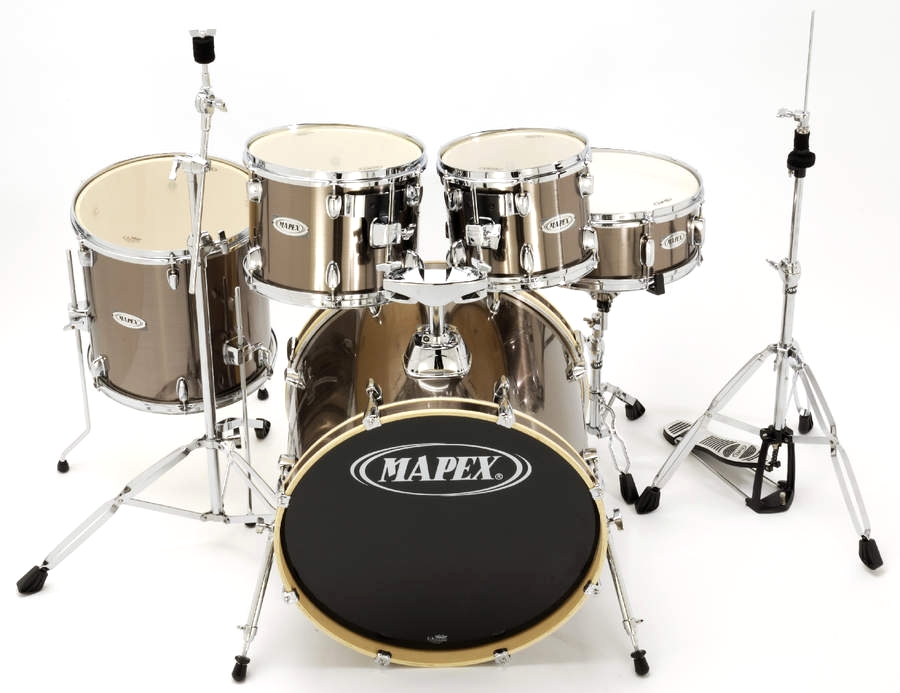
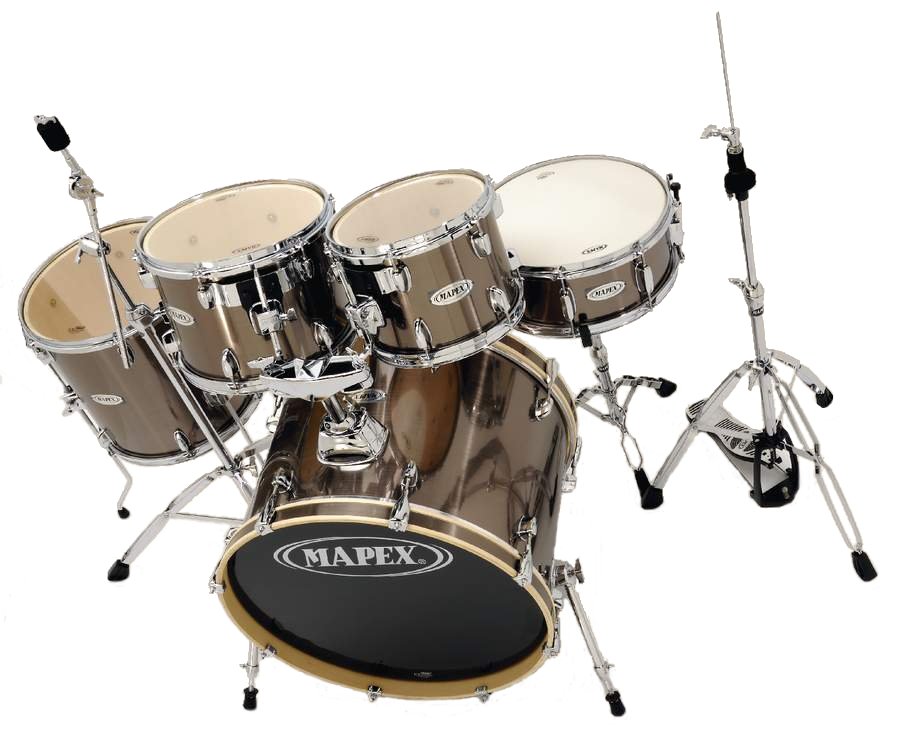
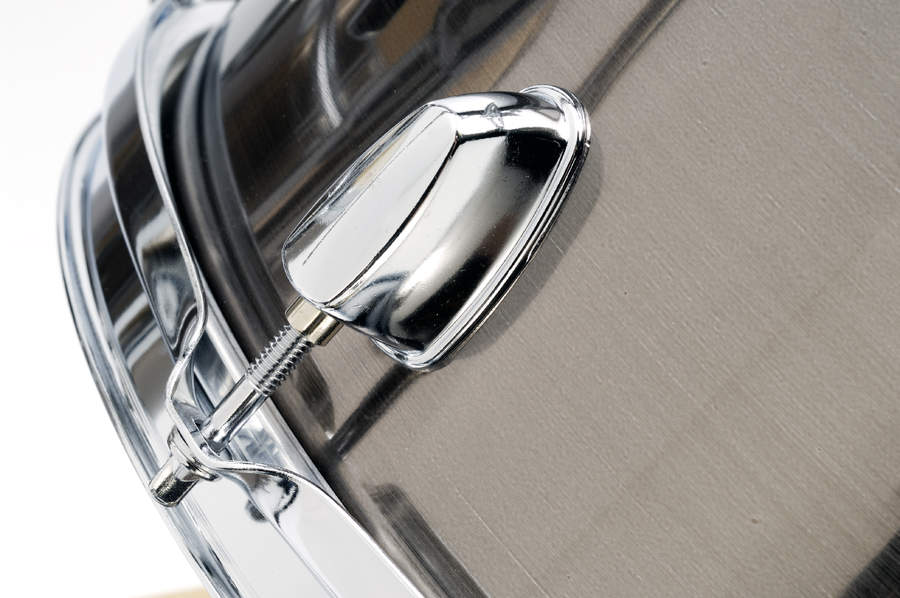
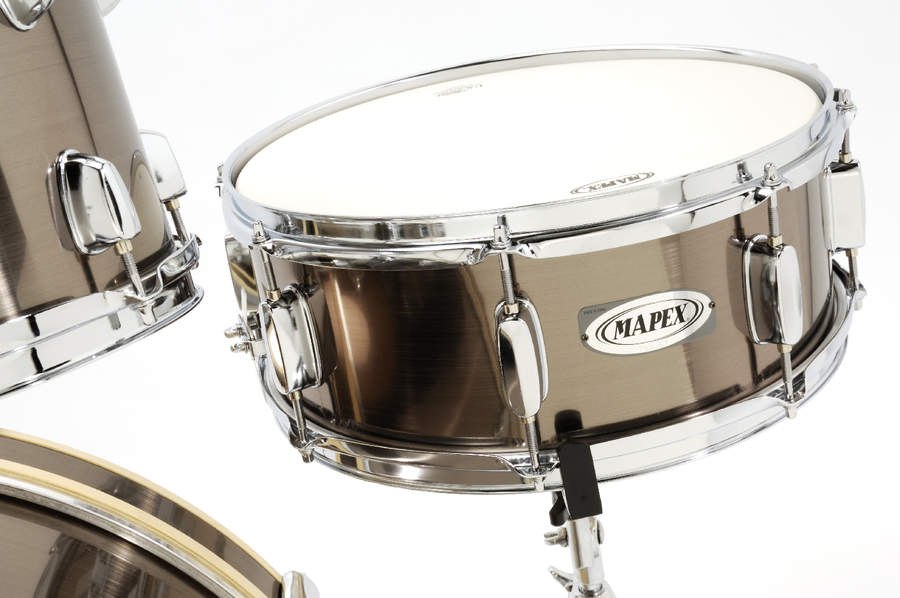
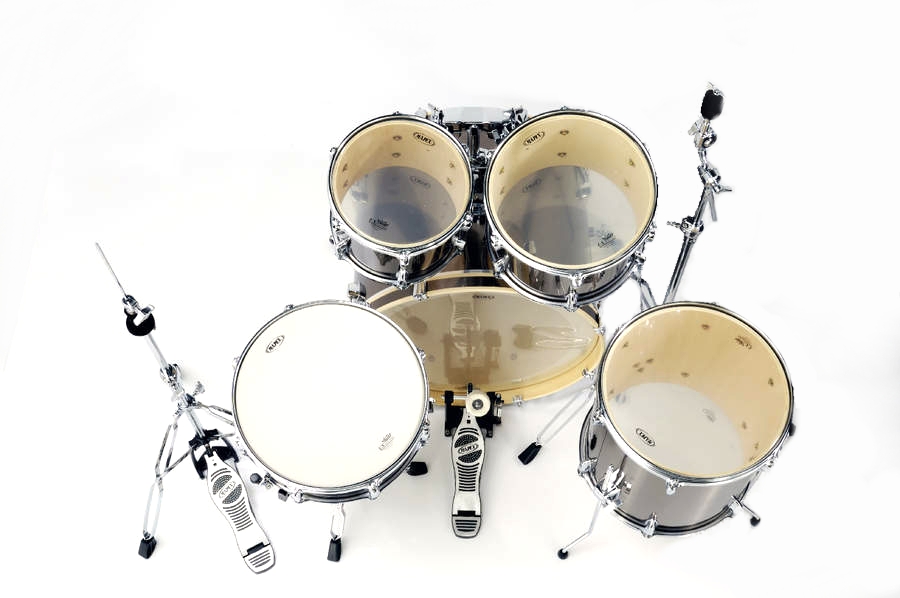
Launched in 2006, Mapex´s QR Series drum kits slot neatly beneath the company´s highly regarded VX Series. While the price points that the two ranges occupy are pretty close (separated by less than £100), the QR has the clear distinction of retailing at well below the £500 mark.
Mapex is keen to emphasise that although they´re the starting line of the Mapex brand in the UK, the QR kits should not be viewed as strictly entry level as they contain a good sprinkling of features from the company´s higher ranges. In Mapex´s own blurb, the QR Series is “ideal for the serious beginner or the journeyman player looking for a second kit to gig with.”
Build
There are two kit options for the QR Series. The kit on review is built around a 22”x16” bass drum, 14”x5½” snare drum, 10”x8” and 12”x9” toms, and a 14”x14” floor tom. The other available kit takes the same dimensions of bass drum and snare, and partners them with 12”x9” and 13”x10” toms and a 16”x16” floor tom. There is a modest selection of different sized toms, floor toms and bass drums, which can be ordered separately.
All QR drums are made from 100% basswood; the shells are a uniform eight-ply, 7.2mm thick. There is no metal-shelled alternative to the basswood snare supplied. The choice of finishes extends to four wraps, two of which are new for 2007. They are Onyx Sparkle (marbled blue and white), Angel Wing (white sparkle), Blue Sparkle and Grey Steel. The Grey Steel wrap of the review kit (pictured) has been professionally fitted, with no creases, tears or slack areas.
Whether or not it succeeds as a look is open to debate. The pattern is made up of innumerable tiny horizontal bands in subtly different shades of grey. The aim is to emulate the appearance of brushed metal and it does this so well that you actually have to run a finger over the wrap to discover that it is in fact smooth.
Convincing though it is, like a real metal-shelled kit the great expanse of shell is so similar in hue to the hardware that frames it, that there is little relief from the metallic theme. It´s a question of taste, you might prefer a little more contrast between the shell and the other elements (by having smoked chrome lugs and hoops, for instance), but others may love the effect as it is. We should add that under stage lights the kit does give off a real shimmer.
Want all the hottest music and gear news, reviews, deals, features and more, direct to your inbox? Sign up here.
The lugs are small, bullet-shaped examples that are attached to the shells with single bolts, while the toms are hung using Mapex´s ITS isolation mounts, a feature drawn down from dearer Mapex ranges. A hardware pack is included in the price and features a snare stand, hi-hat stand, boom-arm cymbal stand, bass drum pedal and stool. All of the stands are slightly undersized, but they are reassuringly solid nonetheless.
Hands On
The kit slots together easily, with the two rack toms being mounted on top of the bass drum while the floor tom legs lock off in the usual manner. The clear Remo UX heads fitted are quite thin and, as such, when sitting behind the kit the toms initially seemed close to wandering into ‘boing´ territory. The toms began to sound warmer once the heads had weathered a little, and out front (where it really counts) they projected mid-range oomph eagerly across the mix.
With super-length bass drums currently as ubiquitous as the tattoos engulfing the torsos of the players behind them, it´s refreshing to come across a 22” bass drum that is a mere 16” in depth. The difference is palpable, as it punches out an immediate, tight response with enthusiasm. We found its balance of power and note very pleasing.
Tuned down, it won´t deliver an impenetrable wall of darkness, but it goes pretty low and sounds great mic-ed up. The snare was equally as co-operative, giving a pretty decent crack without any unwanted harmonics. We had to tune it up to get it to really bite but, as snares at this price point are usually shrill, this one was a pleasant surprise. The QR snare is never going to cut through in the manner of a solid-shelled brass snare, but it´s responsive, versatile and, when mic-ed up, sounds superior to the point of being refined.
MusicRadar is the number 1 website for music makers of all kinds, be they guitarists, drummers, keyboard players, djs or producers...
GEAR: We help musicians find the best gear with top-ranking gear round-ups and high- quality, authoritative reviews by a wide team of highly experienced experts.
TIPS: We also provide tuition, from bite-sized tips to advanced work-outs and guidance from recognised musicians and stars.
STARS: We talk to musicians and stars about their creative processes, and the nuts and bolts of their gear and technique. We give fans an insight into the actual craft of music making that no other music website can.
